The Moon during a total lunar eclipse in November 1993.
Click on image for full size
Courtesy of Andy Steere
Total Lunar Eclipse - November 2003
News story originally written on November 7, 2003
The second total lunar eclipse of 2003 will
occur on the night of Saturday, November 8th. The Earth's shadow will darken
the Moon for a total of more than
four hours, while the "total eclipse phase" spans a period of about
25 minutes. If you live in the eastern part of North America, the middle of
the eclipse occurs around 8:19 P.M. The eclipse begins before moonrise as seen
on the West Coast, so the Moon will be tinted red as it rises in the West. The
copper hue of the Moon during a lunar eclipse is caused by red light refracting
through Earth's atmosphere which lights the Moon
Earth's shadow has two parts: a lighter outer ring, and an inner, darker circle.
During a total lunar eclipse, the Moon passes through both sections of this
shadow, so there are several different stages to the eclipse. The link to NASA's
page about this eclipse (below) provides details about the times of the different
stages for viewers in various locations.
You might also be interested in:
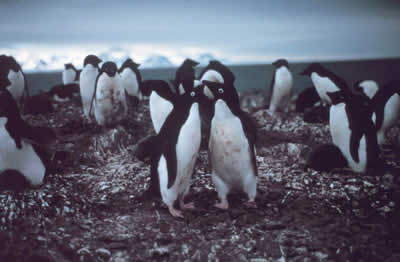
Scientists have recently discovered that thousands of Adelie Penguins thrive in patches of the chilly Southern Ocean near Antarctica's coastline. In these special areas of the ocean, called polynyas,
...more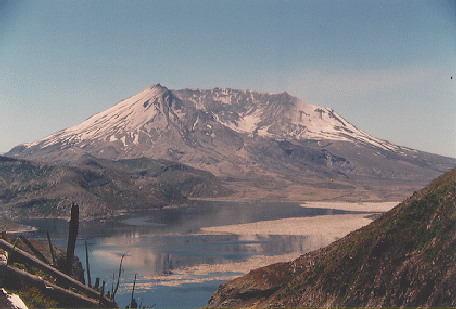
After remaining quiet for 18 years, Mount St. Helens, a volcano in the Cascade Range of Washington, U.S.A., is showing signs of activity, puffing steam and ash as scientists look for clues to whether
...more
Today, our climate is changing at breakneck speeds. To better understand how this speedy climate change may affect plants and animals in the future, researchers are looking into the past. The researchers
...more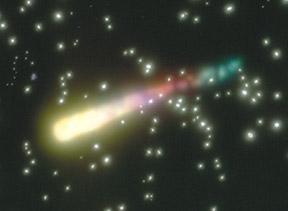
A large meteor exploded in the sky near Chicago shortly after midnight on the morning of March 28, 2003. People in Wisconsin, Illinois, Indiana, and Ohio witnessed the disintegration of the meteor in Earth's
...more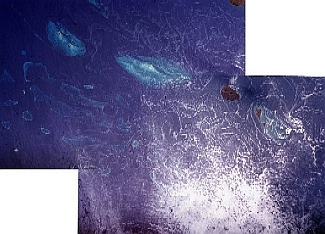
On May 20, 2003, the crew of the International Space Station took a photo of the Earth below them that shows more than a dozen coral reefs sitting in the shallow waters of the Red Sea. The light blue
...more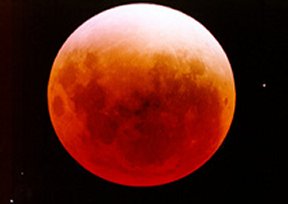
The first eclipse of 2003 will occur on the night of Thursday, May 15th (or early in the morning on May 16th if you live in Europe!). This eclipse is a total lunar eclipse, so the Earth's shadow will darken
...more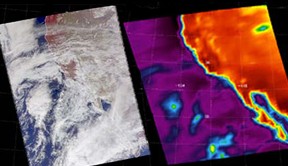
Predicting the weather is not an easy job, but it is becoming easier as new technologies are developed. NASA's Aqua satellite is one of these new technologies that are helping meteorologists make even
...more














